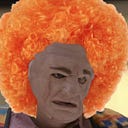New Bobby Fischer Chess Variant Found Posthumously: the Swastika Shuffle
In a shocking discovery that has sent shockwaves through the chess community, a previously unknown chess variant created by the legendary chess grandmaster Bobby Fischer has been unearthed. But what makes this find truly controversial is the arrangement of the chess pieces on the board—forming a swastika.
Uncovered from a hidden compartment within Fischer's personal belongings, the variant, aptly named "Swastika Shuffle," presents a unique challenge for chess enthusiasts. Instead of the traditional starting position, the pieces are placed in a manner that eerily resembles the notorious symbol associated with Nazism.
Chess experts and historians alike are grappling with the implications of this discovery. The chess world, known for its steadfast adherence to centuries-old rules, finds itself at a crossroads. Many are perplexed as to why Fischer would design such a variant and what his intentions might have been.
Fischer's close confidantes have been taken aback by the revelation. "Bobby was always known for his unconventional thinking, but this discovery is truly baffling," said one former chess companion. "We're not sure if he was trying to make a political statement or if it was simply a strange artistic expression. We may never know."
Since the news broke, chess forums and social media platforms have been inundated with heated debates and discussions. Some argue that the discovery should be met with condemnation and discarded immediately, while others claim it should be treated as a historical artifact, representing a dark chapter in chess history.
The chess variant itself poses a significant challenge to players. The unique starting formation requires a complete reevaluation of strategies and tactics. Both players must navigate the board while subconsciously wrestling with the controversial symbol staring back at them. It's an uncomfortable situation, to say the least.
While many chess enthusiasts are torn about the implications of playing the Swastika Shuffle, some have tried to see it as an opportunity for growth and learning. "Chess has always been about mental agility and adaptation," said a prominent chess coach. "This variant might serve as a reminder to critically analyze the game and challenge our own biases. It's a strange twist, but it can spark important conversations."
In response to the outcry, various chess organizations and federations are discussing the possibility of hosting exhibitions to explore the Swastika Shuffle variant and its historical context further. Some propose using the opportunity to educate players about the dangers of hate symbols and to promote unity through the power of the game.
As controversy and curiosity collide, the chess world is left grappling with a newfound complexity. The discovery of this previously unknown chess variant is a stark reminder that even the most revered figures in history can leave behind unexpected legacies. Bobby Fischer’s final contribution to the chess world may forever be tainted by the haunting specter of the Swastika Shuffle, a somber footnote in an otherwise controversy-free career.
